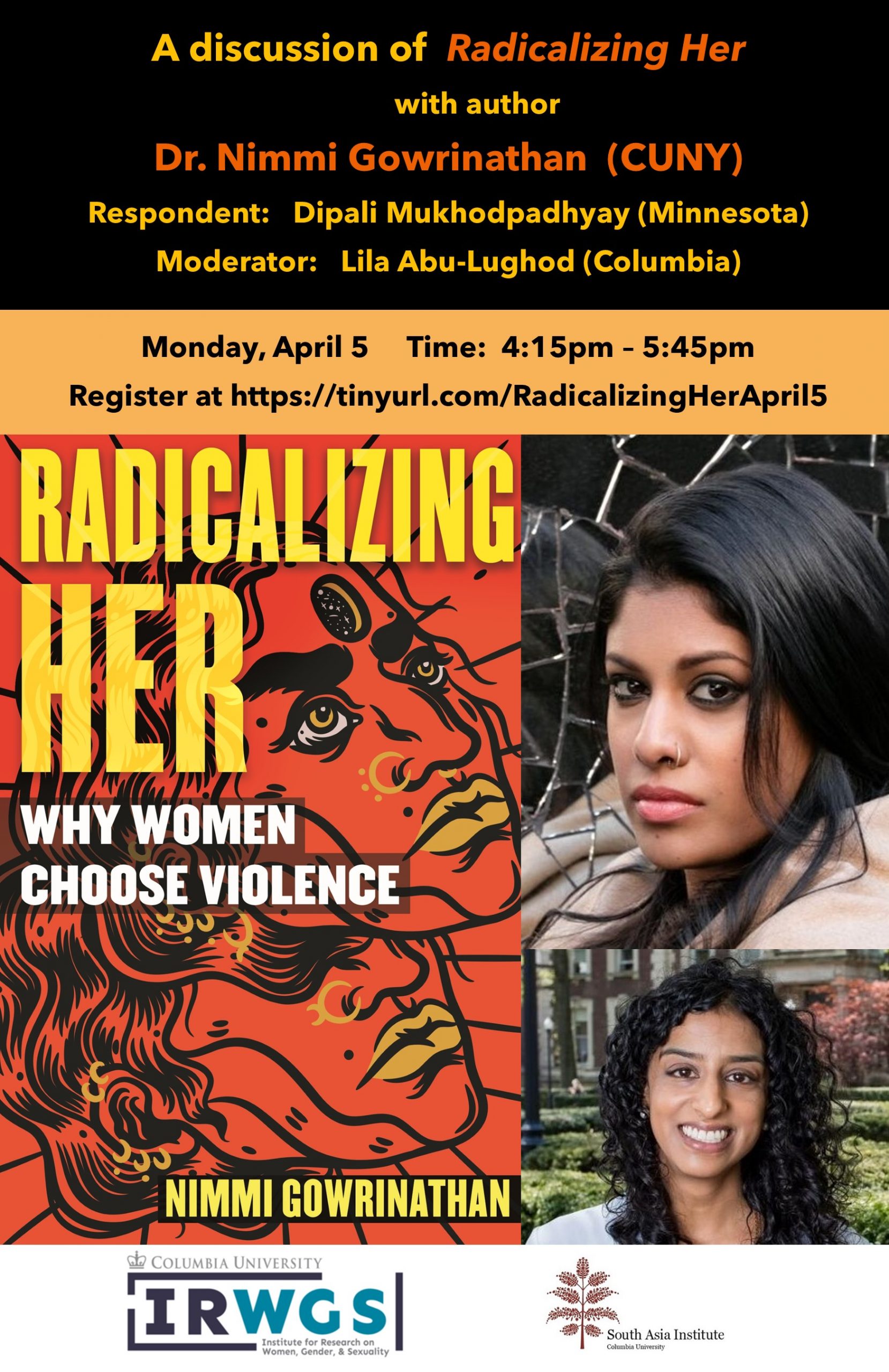A discussion of Radicalizing Her
with author Dr. Nimmi Gowrinathan
4:15-5:45 pm EST, Monday, April 5
Respondent: Dipali Mukhodpadhyay (University of Minnesota)
Moderator: Lila Abu-Lughod (Anthropology)

Co-sponsored by the Institute for Research on Women, Gender, and Sexuality and the South Asia Institute
Though the female fighter is often seen as an anomaly, women make up nearly 30% of militant movements worldwide. Historically, these women–viewed as victims, weak-willed wives, and prey to Stockholm Syndrome–have been deeply misunderstood. Radicalizing Her holds the female fighter up in all her complexity as a kind of mirror to contemporary conversations on gender, violence, and power. Dr. Gowrinathan spent nearly twenty years in conversation with female fighters in Sri Lanka, Eritrea, Pakistan, and Colombia. The intensity of these interactions consistently unsettled her assumptions about violence, re-positioning how these women were positioned in relation to power. Gowrinathan posits that the erasure of the female fighter from narratives on gender and power is not only dangerous but also, anti-feminist. She argues for a deeper, more nuanced understanding of women who choose violence.